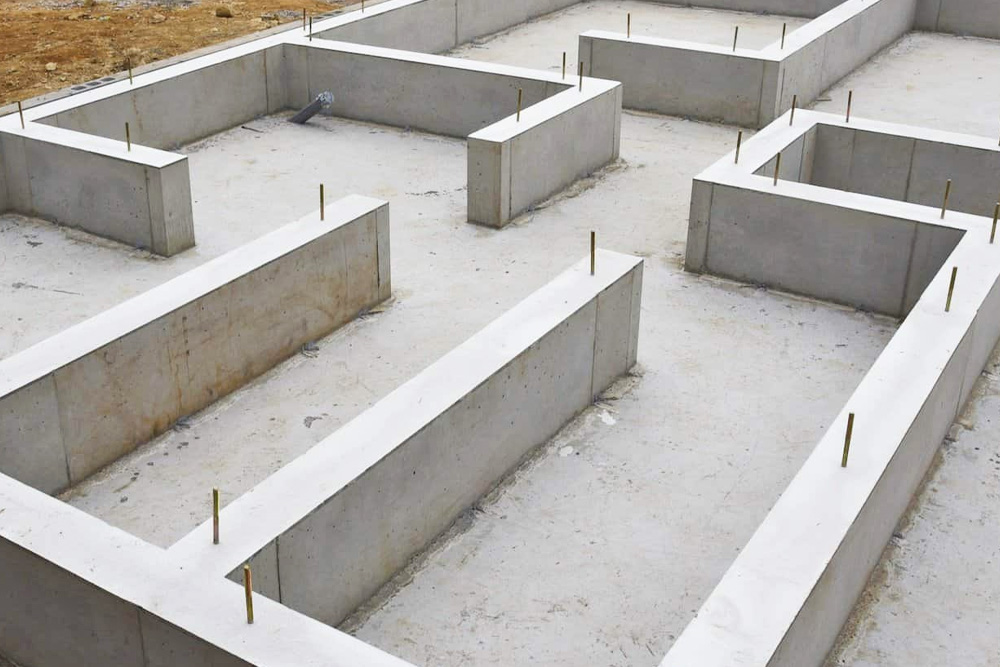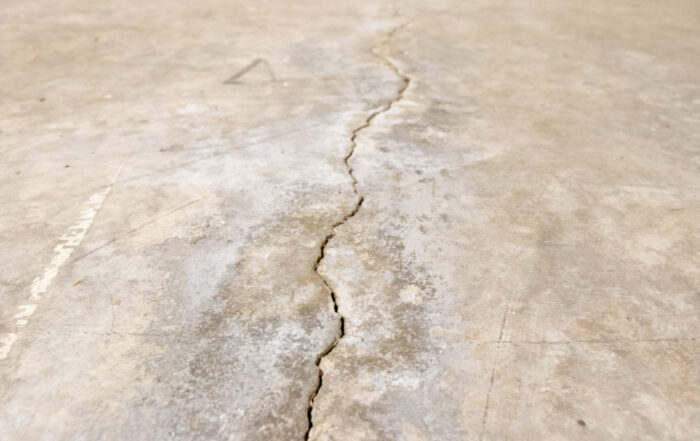The Most Common Types of Home Foundations in Texas

The Most Common Types of Home Foundations in Texas
When it comes to your home, the foundation is the unsung hero. It provides stability, supports the structure, and shields the house from environmental challenges. In Texas, where the climate and soil conditions vary greatly, choosing the right type of foundation is crucial. Let’s explore the most common types of home foundations found in Texas, how they perform in different regions, and their unique advantages and drawbacks.
Understanding Texas Soil and Climate
Texas is home to a diverse range of soil types, from clay-rich blackland prairies to sandy loams and rocky caliche. This soil diversity, combined with Texas’ extreme weather patterns—hot summers, sudden rainstorms, and occasional freezes—makes foundation selection a critical decision for builders and homeowners alike.
The Texas Soil Challenge
- Expansive Clay Soils: Found in many parts of Texas, these soils swell when wet and shrink when dry, leading to ground movement that can wreak havoc on foundations.
- Sandy Soils: Common in East Texas and coastal areas, sandy soils drain well but may not offer the same stability as clay soils.
- Rocky Terrain: In Central and West Texas, rocky soils can complicate foundation installation but often provide natural stability.
Most Common Foundation Types Found in Texas
Now that we understand the environmental context, let’s dive into the most common foundation types in Texas.
1. Slab-on-Grade Foundations
What Is It?
Slab-on-grade foundations are poured concrete slabs that rest directly on the ground. They are one of the most popular foundation types in Texas due to their affordability and quick installation process.
Advantages:
- Cost-Effective: Slab-on-grade foundations are generally less expensive to construct compared to other types.
- Low Maintenance: With fewer components and no crawlspace, there’s less opportunity for pests, moisture, or mold to become an issue.
- Durable in Flat Terrain: Ideal for regions with stable soil conditions.
Challenges in Texas:
- Vulnerability to Soil Movement: In areas with expansive clay soils, slab foundations can crack or shift if not properly reinforced.
- Limited Access to Utilities: Since plumbing and wiring are embedded in the concrete, repairs can be costly and disruptive.
Best Suited For:
Slab-on-grade foundations are commonly used in South and East Texas, where the soil is more stable, and there’s less risk of significant ground movement.
2. Pier and Beam Foundations
What Is It?
Pier and beam foundations elevate homes above the ground using concrete or wooden piers connected by beams. A crawlspace is created between the ground and the home.
Advantages:
- Adaptability: They perform well in areas with shifting or uneven soils.
- Easy Repairs: Utility lines in the crawlspace are accessible, making maintenance and repairs less invasive.
- Drainage: Elevated homes are less likely to experience water damage during heavy rains.
Challenges in Texas:
- Moisture Issues: Without proper ventilation, the crawlspace can attract mold, mildew, and pests.
- Higher Costs: Pier and beam foundations are typically more expensive to build than slab-on-grade foundations.
- Not Ideal for Flood Zones: In coastal areas prone to hurricanes, this type of foundation may not meet modern elevation requirements.
Best Suited For:
Pier and beam foundations are often found in older homes in Central Texas, as well as in areas with uneven terrain or significant soil movement.
3. Post-Tension Slab Foundations
What Is It?
A post-tension slab is a variation of the slab-on-grade foundation, but with added reinforcement. Steel cables, called tendons, are tensioned after the concrete is poured to strengthen the foundation.
Advantages:
- Crack Resistance: The tensioned cables minimize cracking and help the slab withstand soil movement.
- Durability: This type of slab can support heavier structures compared to traditional slabs.
- Cost-Effective in the Long Run: Though more expensive upfront, reduced repair costs make post-tension slabs a smart investment in areas with active soils.
Challenges in Texas:
- Specialized Installation: Post-tension slabs require skilled labor and precise engineering, which can drive up costs.
- Repair Complexity: If the cables fail, repairs are more complicated than traditional slab foundations.
Best Suited For:
Post-tension slab foundations are common in North and Central Texas, where expansive clay soils are prevalent.
4. Crawlspace Foundations
What Is It?
Crawlspace foundations raise the home above the ground, leaving a small, ventilated area beneath the structure. This is similar to pier and beam foundations but may use continuous perimeter walls instead of piers.
Advantages:
- Elevation: Protects homes from flooding and allows for good air circulation.
- Access to Utilities: Easier to repair plumbing, electrical, or HVAC systems compared to slab foundations.
- Improved Insulation: Crawlspaces provide a natural barrier against extreme ground temperatures.
Challenges in Texas:
- Moisture Management: Poor ventilation can lead to mold, wood rot, or pest infestations.
- Higher Initial Costs: Construction costs are higher than slab-on-grade foundations.
Best Suited For:
Crawlspace foundations are ideal for East Texas, where higher humidity and occasional flooding make elevation a priority.
5. Basement Foundations
What Is It?
Basement foundations involve digging below ground level to create an additional living or storage space beneath the home. These are less common in Texas due to soil and climate conditions.
Advantages:
- Extra Space: Basements provide valuable storage or living areas.
- Energy Efficiency: Subterranean spaces are naturally cooler in summer and warmer in winter.
- Stability: Properly constructed basements can handle soil movement well.
Challenges in Texas:
- Rarely Used: Texas’ expansive clay soils and high water tables make basements impractical in most regions.
- Flood Risk: Improperly waterproofed basements can become waterlogged during heavy rains.
Best Suited For:
Basements are most common in North Texas, particularly in areas with more stable soils and lower water tables.
6. Raised Foundations for Flood Zones
What Is It?
In flood-prone areas, homes are built on raised foundations using piers, pilings, or stilts to elevate the structure above flood levels.
Advantages:
- Flood Protection: Keeps the home safe from water damage during hurricanes and storm surges.
- Longevity: Raised designs reduce direct contact with the ground, minimizing soil-related wear and tear.
Challenges in Texas:
- Wind Resistance: In hurricane-prone areas, raised foundations must be designed to withstand high winds.
- Cost: Elevated foundations are more expensive to construct than traditional designs.
Best Suited For:
This type of foundation is prevalent in coastal areas like Houston, Galveston, and Corpus Christi.
The Best Foundation for Your Home
The “best” foundation depends on several factors, including soil type, climate, budget, and the specific needs of your home. Consulting with a structural engineer or foundation specialist is essential to making the right choice.
Questions to Consider:
- What type of soil is my home built on?
- Is the area prone to flooding or heavy rainfall?
- What is my budget for foundation construction and maintenance?
- Will I need easy access to utilities in the future?
Keeping Your Foundation in Great Shape
No matter what type of foundation your home has, regular maintenance is key. Here are some tips:
- Monitor for Cracks: Keep an eye on walls, floors, and ceilings for cracks that may signal foundation issues.
- Control Moisture Levels: Install proper drainage systems and keep the soil around your home evenly watered.
- Inspect Annually: Have a professional assess your foundation every year to catch problems early.
A Solid Foundation for Texas Living
From slab-on-grade to pier and beam, each foundation type has its place in Texas’ diverse landscape. By understanding the strengths and challenges of each option, you can make informed decisions that protect your home for years to come. A well-chosen and well-maintained foundation isn’t just a part of your house—it’s the bedrock of your peace of mind.



